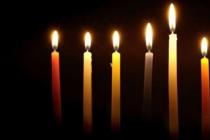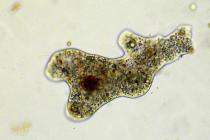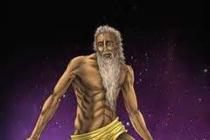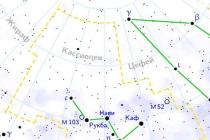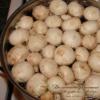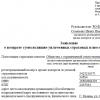The fabulous antiquity of Hellas
Competition – quiz for students
6 classes on the topic “Myths of Ancient Greece. Olympian Gods.
Narizhnaya Alexandra Lvovna,
Russian language teacher and
Literature MAOU Secondary School No. 40
Novorossiysk 2010
Competition – quiz
“Myths of Ancient Greece. Olympian Gods.
Target:
- developing among schoolchildren an interest in in-depth study of literary topics, in particular ancient Greek mythology;
- creating conditions for the realization of children’s creative abilities;
- improving culture, broadening the horizons of students.
Form of conduct
.
Contest. Teams of five people each participate. Teams are given homework:
– bring a picture to life or dramatize a myth;
Prepare a retelling of the myths about Hercules;
Know information about the Olympian gods: what they looked like, their attributes, external decoration, their distinctive qualities, etc.;
Come up with a name for the team, choose a patron and praise him;
Find out the meaning of aphorisms from myths dedicated to the Olympian gods.
Progress of the competition:
Leading
Today children from four classes will show us their knowledge about the gods of Ancient Greece. They themselves prepared for the quiz, which we called “Fairytale Hellas.” Why Fabulous? After all, myths about gods are very similar to fairy tales: they are just as colorful, fantastic and interesting. The guys, dear viewers, will show you how much important and instructive they learned about Ancient Greece, its inhabitants: gods, heroes and people. So, let's begin.
Teams, please take the stage (the team appears on stage to the music)
-Competitions will be judged by a jury (introduce jury members)
-So, our acquaintance is over, let's proceed to the main part - the competitions. Teams, take your seats. Begin.
1 competition
The first task was given to the teams in advance: come up with a name, choose a patron from the Olympic gods and praise them so that the team would be successful in the competition. The result of this competition will depend on how successfully the teams selected a patron.
The score for this competition is 3 points.
2 competition
"Olympic Journalists Competition"
One participant from each team is invited to choose a task, which is as follows. As you know, journalists are interested in many things and can describe any event. You are asked to explain the meanings of “catchphrases” that appeared thanks to myths. The teams must deliberate for one minute and answer what this expression means and what myth it comes from.
The score for this competition is 2 points.
Check sheet.
Augean stables-1)dirty room;
2) neglect.
The expression is taken from the myth "The King's Animal Farm"
Augea."
Ariadne's thread- a guiding thread that helps you get out of
predicament.
The expression is taken from the myth "The Journey of Theseus"
To Crete"
Golden Rain- wealth, unexpected enrichment.
The expression is taken from the myth "Birth of Theseus" or
"Danae"
Torments of Tantalus- unbearable torment when it is impossible to achieve
goals. The expression is taken from the myth of the same name.
Nectar and ambrosia– 1) an unusually tasty drink, an exquisite dish;
2) delicious dish.
3) food of the gods.
The expression is taken from the myth "Gods of Olympus"
Panic fear- sudden, inexplicable and very strong fear.
The expression is taken from the myth "Pan and Syringa".
Zeus the Thunderer- a formidable boss.
The expression is taken from the myth of the same name
Pandora's Box- a source of misfortune and disaster.
The expression is taken from the myth "Pandora".
3 competition.
-This is a competition" Connoisseurs" It will require guys who are ready to recognize the name of the Olympian god, no matter how scarce and contradictory the information about him may be. Signs should sound that determine the name of the god the team has guessed. There are only seven of them. It is clear that the first sign is the rarest and most complex, for which the guesser will receive the highest score - 7. The last sign is the most common, and by guessing it, the participant receives one point. Participants in the competition name one feature at a time and are given 30 seconds to think about it. So, the fewer signs you need to determine the name of God, the higher the score for the answer. (Participants are invited in pairs, one from the team).
Maximum score 7 points.
contest.
It's called show jumping Aedov" Who among the viewers will remember who were called the Aeds? (Aedas are ancient Greek myth-telling wanderers, most often a blind man performing the myth as a song). So, our aeds will tell myths dedicated to the exploits of Hercules. But first, the teams must guess from the proposed list of characters the heroes of their myth, which they received as part of the assignment. Please approach one person from the team to select an envelope with a task (they approach the participant and take the envelopes containing the task).
The team is allotted 30 seconds for the meeting, then they must present to the jury their card with the name of the myth and the names of the characters of this myth selected for it. For each name guessed correctly - one point (five points in total).
Then the player representing the team must tell his myth briefly and beautifully.
The maximum score for this part of the answer is 3 points.
Check sheet.
Lyrnaean Hydra: Hercules, Iolaus, Lern, Eurystheus, Cancer.
Erymanthian boar: Erymanthus, Pholus, Hercules, Chiron, Eurystheus.
Hercules at Admetus: Alcestis, Admetus, Tanat, Hades, Hercules.
Animal Farm of King Augeas: Augeas, Peneus, Alpheus, Neleus, Periclymenes.
Belt of Hippolyta: Hippolyta, Hera, Aella, Melanippe, Hercules.
contest.
"Attributes of the Gods"
It is known that the most important god on Olympus is Zeus. He is the most majestic, the most proud, the strongest and most powerful. He knew everything that was happening on Olympus and on Earth. Lightning was a symbol of power and unimaginable strength. He struck down everyone who entered into the fight with Zeus - be it Gods or mortal people - with his arrows. Our next competition will be related to the attributes of the gods.
Three players from each team compete in this competition, leaving the other two for the next competition, which is held at the same time. Team representatives, receive “amphoras” containing things belonging to different Olympian gods. You are given five minutes to remember who owns what item. Write everything down on a piece of paper and present it to the jury. This competition takes into account the correctness of the answer, the number of attributes found, and the fact that the magical power that this or that thing possessed is named.
The maximum score for this competition is 1 point per attribute, one point for each additional information about it.
The teams complete the task, and the next competition is held on stage.
contest
-It's called the Delphic Oracle.
Does anyone in the audience know who the Delphic oracles are and how they appeared in Ancient Greece?
Which team is asked a question, any of the players answers - the most important thing is a quick answer; if the answer is not given, the first team that wants to answer answers.
For the correct answer - 1 point.
Questions.
How are the Olympian gods different from people?
What did the gods eat?
Which god performed the most deeds in the first days of his life?
Which of the Greek gods invented the lyre, the pipe?
Which Greek god invented the flute?
Which of the Olympian gods took revenge on his mother for her unworthy behavior and how?
Which god did Zeus take from his mother's womb and sew into his thigh?
Which of the gods was the busiest and did not sleep at night?
Which of the gods did physical labor, and what kind?
Which god had an invisible hat?
Why did the goddess of wisdom Athena begin to patronize artisans?
Why did Aphrodite choose Hephaestus as her husband?
Answers.
1. The Olympian gods are immortal, colorless blood flows in their veins - ichor.
2. The gods ate ambrosia and nectar.
3. Hermes was born early in the morning, made a cithara at noon, learned to play it, and in the evening he stole cows from Apollo.
4. Hermes invented the lyre by stringing strings onto a tortoise's shell; Pan carved a pipe from the reed into which Syringa turned.
5. Athena came up with a flute, but threw it away when she saw how ugly her cheeks were swelling.
6. Hephaestus made a throne on which you could sit, but you could not stand. He gave it to his mother Hera.
7. Dionysus.
8. At night, Hermes accompanied the souls of people who had passed away to the kingdom of Hades. He was also the messenger of Zeus.
9. Hephaestus was a blacksmith, Athena weaved.
10. Hades means “invisible.”
11. Because Athena invented the potter's wheel, the spinning wheel, and fired the first jug.
12. Hephaestus was endowed with the beauty of mind and design, creativity.
contest.
« Living picture»
Teams on stage show their “picture”, and the teams must guess what their opponents were trying to depict.
The score for this competition is 5 points plus 1 point for the correct answer to the question.
(On stage, teams show excerpts from myths and ask questions.)
Leading :
Our competition has come to an end. While the jury is counting the points, I invite the fans to show their knowledge. For a quick and correct answer, a fan can receive 1 point for his team.
What does the expression “Labor of Sisyphus” mean?
Where did Hercules meet Cerberus? (in the kingdom of the dead)
Who fought Medusa the Gorgon? (Perseus)
What did Jason find in Colchis? (The Golden Fleece)
Who did the Minotaur fight with? (with Theseus)
What mythological plot is the tradition of wearing
For the correct answer - 3 points. Teams can also participate. (According to the myth, Prometheus, who gave fire to people, was chained to a mountain. Moreover, the rings of the chain held each of his fingers. When Hercules freed Prometheus, he, being very strong, hurried. He tore out the chain, but one ring with a stone, part of the rock, remained on the ring finger. Since then, people, honoring Prometheus, began to wear rings with stones.)
A competition is held, at which time the jury sums up the results.
Leading:
So, the jury is ready to announce the results of our competitions and name the winners.
An awards ceremony is taking place.
Application.
Material for the competition 5


COMMITTEE ON PUBLIC EDUCATION OF THE ADMINISTRATION OF THE Solnechnogorsk MUNICIPAL DISTRICT MUNICIPAL STATE EDUCATIONAL INSTITUTION SECONDARY EDUCATIONAL SCHOOL No. 4
Quiz lesson
"Myths of Ancient Greece"
Zaitseva
Nadezhda Iosifovna -
history and social studies teacher,
Target: repetition and consolidation of material on the topic;
development of students' creative abilities.
Foster interest in literature and a culture of collective response.
During the classes
The teacher leads the quiz, and one of the strong students helps him (announces the rules of the game, keeps track of time, counts points).
The class is divided into 2 teams.
1. Teacher's word: For several lessons we have been studying the mythology of ancient Greece.
You asked: “We live in the 21st century, we use nuclear energy and fly into space, we have learned to perform complex medical operations and playfully operate a computer. Why do we, people of the third millennium, study some myths invented in very distant times?
Yes, this is true, human civilization has achieved a lot. But listen to your speech. A person often pronounces words, for example, notebook, stadium, hero, or the word “vacation” that makes you so happy, without thinking about the fact that they originated from the ancient Greek language.
In addition, ancient Greek mythology is the source of the appearance of a large number of stable combinations in the language: Sisyphean labor, Ariadne’s thread, Olympian calm, etc. In what life situations should they be pronounced? What meaning do they carry? The study of mythology gives us the answer to this question.
Have you ever wondered why military doctors' shoulder straps and pharmacy signs are decorated with a bowl with a snake? Why are some constellations called Ursa Major, Cassiopeia, and Gemini? Where do the names of the months January, March, May, June come from in our language?
There is only one source - ancient mythology.
Today in the lesson, under my guidance, you will remember and put into practice your knowledge of the mythology of ancient Greece.
So, I announce the beginning of the Olympic Intellectual Games, where everyone will pave the way to victory not by force, but by mind. During the Olympic Games, sacred peace reigns, where there is no place for quarrels and insults.
2. Teacher's assistant: I ask you to consult and choose two teams of 6 people (teams are divided so that there are an equal number of strong and weak students). Come up with a name for the team, choose a captain. The rest are fans who can also earn chips for the correct answer. The chip is a bay leaf, a symbol of the Olympic Games.
1 competition. Blitz tournament.
Assistant: Within three minutes, the teams will be asked questions in turn, to which an answer must be given immediately.
1. Wild creatures, half-humans, half-horses, inhabitants of mountains and forests? (centaurs).
2. Guardian of Hades, a three-headed dog with a snake tail? (Cerberus)
3. Which god is the ugliest? (Hephaestus)
4. Which goddess is nicknamed Foam-Born? (Aphrodite)
5. Where was the home of the gods? (Olympus)
6. Who was the supreme god of Greece? (Zeus).
7. What was the name of Zeus's father? (Kronos)
8. Which goddess was born by Zeus himself? (Athena)
9. Name the brothers of Zeus. (Poseidon, Hades).
10. Who gave people fire? (Prometheus)
11. Which of the gods of Olympus limped and why? (Hephaestus was thrown from Olympus).
12. A monster with the body of a man and the head of a bull? (Minotaur).
13. Which god had winged sandals? (Hermes)
14. Which god gave people the alphabet, writing, counting and numbers? (Hermes).
15. What is the name of the river of the underworld that gives people oblivion? (Summer)
16. Name the twin gods, the children of Zeus. (Apollo and Artemis).
17. The name of the hero who freed Prometheus? (Hercules).
18.What does the name Prometheus mean? (prudent).
19. What was the name of the ship on which Jason went for the Golden Fleece? (Argo)
20.The names of which characters in the myth of Perseus became the names of constellations? (Cassiopeia, Cepheus, Andromeda, Perseus, Keith).
21.Who made the first tools and taught people how to use them? (Prometheus)
22.Who made wings and thought about flying for the first time? (Daedalus)
2 competition. Interpretation of phraseological units.
Assistant: Each team has a phraseological dictionary on the table. Your task: take the envelope and after five minutes explain the meaning and origin of the stable combinations in it.
cornucopia apple of discord
Danaid barrel Pandora's box
Panic fear of the torment of Tantalus
Augean stables Procrustean bed
While the teams are conferring, questions for the fans.
1. What was the name of the food of the Greek gods that gave them eternal youth and immortality? (nectar, ambrosia)
2. Which of the three goddesses (Athena, Aphrodite, Hera) did Paris give an apple with the inscription “The Most Beautiful”? (Aphrodite)
3. What war broke out because of this dispute between the three goddesses? (Trojan)
4. Name the hero of Greek mythology, whose activity became a symbol of useless labor. (Sisyphus)
5. What does the phraseological unit “titanic struggle” mean? (hard, long struggle).
6. What does the name Pandora mean? (endowed with all gifts)
7. What was the name of the goat that suckled Zeus? (Amalthea)
8. How many daughters did King Danaus have? (13)
9. What is the name of the Greek hero who killed Medusa the Gorgon? (Perseus)
10. What is the name of the Greek hero who killed the Minotaur? (Theseus)
We listen to the teams’ answers, evaluate them, and reward them with chips (each correct answer is 1 chip).
3 competition. Captains' competition.
Assistant: team captains come to the board. The names of the Greek gods are written on the board. Your task is to write their functions and give the Roman equivalent of the name.
1. Zeus - Jupiter (king of gods and people)
2. Hera - Juno (patron of the family)
3. Aphrodite - Venus (goddess of love)
4. Poseidon - Neptune (god of the seas)
5. Hades - Pluto (god of the underworld)
6. Artemis – Diana (goddess of the hunt)
7. Hephaestus – Vulcan (god of fire)
8. Ares – Mars (god of war)
9. Hermes - Mercury (messenger of the gods)
4 competition. Labors of Hercules.
Assistant: While the captains are completing tasks, questions for the teams. You are given an envelope in which the names of the 12 labors of Hercules are written on separate cards. Your task: in 3 minutes, restore the sequence of feats.
1. Nemean Lion. 2. Lernaean Hydra. 3. Stymphalian birds. 4. Kerynean fallow deer. 5. Erymanthian boar. 6. Augean stables. 7. Cretan bull. 8. Horses of Diomedes. 9. Belt of Hippolyta. 10. Cows of Geryon. 11. Cerberus. 12. Apples of the Hesperides.
Questions for fans:
1. Who did Hercules serve by performing 12 labors? (to Eurystheus)
2. How many heads did the hydra have? (9)
3. Who helped Hercules defeat the hydra? (Iolaus is the nephew of Hercules).
4. Who owned the Kerynean doe? (To Artemis).
5. Where did Eurystheus hide when he saw Hercules with the Erymanthian boar? (In a large bronze vessel).
6. Which god gave the bull to the king of Crete? (Poseidon).
7. What did Diomedes feed his horses? (Human meat).
8. Which goddess helped Hercules all the time? (Athena).
9. Which god gave the belt to the queen of the Amazons, Hippolyta? (Ares).
10. How many golden apples should Hercules bring from the Garden of the Hesperides? (3)
Then the captains' answers and the teams' answers are heard. Analysis of responses. Rewarding with chips.
5 competition. Collect music.
Assistant: Each team is given envelopes containing a paper mosaic. If you put it together correctly, you will get six names of muses. Each name is divided into 6 pieces. Time given to teams is 5 minutes

While the teams complete tasks, fans are invited to solve a mythological crossword puzzle. Hint: if you guess correctly, you will find out the favorite color of the god Poseidon.
1. Guardian of marriage and family hearth.
2. Goddess of love and beauty.
3. God who travels around the world every day in a golden chariot.
4. Continue: Sisyphus...
5. God of the northern menacing wind.
The answers of the team members are listened to. For each correct answer, the team receives 1 chip. The number of chips is summed up and the winning team is revealed. Fans on each team identify the strongest players, who are awarded marks.
The teacher's assistant determines the winners among the fans.
Teacher: a fair fight determined the strongest. Let us crown him with a laurel wreath, and may the goddess of happiness, chance and luck, Fortuna, accompany all participants in our Olympics.
Target: systematization of knowledge, strengthening of positive motivation for learning.
Problems to be solved:
- educational: activating the intellectual activity of students through the use of a game form.
- developing: developing the ability to think logically and construct your arguments convincingly; development of skills of working in creative groups.
- educational: nurturing interest in literature.
Progress of the quiz game
Round 1. Presentation of teams.
(The name, logo, motto must correspond to the theme of the game.)
Round 2. WARM-UP.
A) Name the works from which the following lines are given:
- Dreary, harsh terrain. No man has ever set foot here before. It was here, to the ends of the earth, that the servants of Zeus brought the chained titan to chain him with indestructible chains to the top of the rock. / Prometheus/
- He suffers a heavy punishment in the afterlife for all the deceit, for all the deceptions that he committed on earth. He is condemned to roll a huge stone up a high, steep mountain. He works with all his strength. Sweat pours off him from the hard work. The top is getting closer; One more effort, and the work will be over; but a stone breaks out of his hands and rolls down with a noise, raising clouds of dust. He gets back to work. / Sisyphus/
- Near the island of Cythera, the goddess, daughter of Uranus, was born from the snow-white foam of sea waves. A light, caressing breeze brought her to the island of Cyprus. There the young Oras surrounded the goddess of love who emerged from the sea waves. /Aphrodite/
- Eurystheus was afraid of the mighty hero and did not let him into Mycenae. He conveyed all his orders to the son of Zeus in Tiryns through his messenger Copreus. /Hercules in the service of Eurystheus/
B) Who are they talking about?
- ... patronizes the heroes of Greece, gives them his advice full of wisdom and helps them, invincible, in times of danger. She guards cities, fortresses and their walls. She gives wisdom and knowledge, teaches people arts and crafts. /ATHENA/
- The god of war is the son of the thunderer Zeus and Hera. Zeus doesn't like him. He often tells his son that he is the most hated among the gods of Olympus. Zeus does not like his son for his bloodthirstiness. /ARES/
- One day he made a statue of a girl of extraordinary beauty from shiny white ivory. This statue stood as if alive in the artist’s studio. It seemed that she was breathing, it seemed that she was about to move, walk and speak. The artist spent hours admiring his work and finally fell in love with the statue he himself had created. He gave her precious necklaces, wrists and earrings, dressed her in luxurious clothes, and decorated her head with wreaths of flowers. /Pygmalion/
- It was then that Aphrodite’s punishment befell him. He looks in amazement at his reflection in the water, and strong love takes possession of him. With eyes full of love, he looks at his image in the water, it beckons him, calls him, stretches out its arms to him. /NARCISSUS/
- Finally, forgetting everything, he stopped and turned around. Almost next to him he saw the shadow of Eurydice. /ORPHEUS/
- The great goddess, the wife of the aegis-power Zeus, patronizes marriage and protects the holiness and inviolability of marriage unions. She sends the spouses numerous offspring and blesses the mother during the birth of the child. /Hera/
Round 3. "Black box".
(Images of objects belonging to heroes of myths.)
Round 4. Match the hero of the myth.
(1 representative from each team.)
Orpheus - Eurydice, Zeus - Hera, Hades - Persephone, Apollo - Daphne, Ares - Aphrodite, Pygmalion - Galatea.
Round 5. Blitz tournament.
(you must answer very quickly; if the team is delayed in answering, then the right to answer passes to the opponent).
Stage 1.
- What are myths? (Myths are tales created by the imagination of the people, they tell about the origin of the world and man, explain various phenomena of life, talk about the deeds of gods and heroes.)
- Who are the Hellenes? (Ancient Greeks.)
- What is the name of the supreme god? (Zeus is the god of thunder and lightning.)
- What place did the gods choose for their stay? (Mount Olympus.)
- Who are centaurs? (Mythological creatures, half-man, half-horse.)
- How are myths different from fairy tales? (The myth conveys the people’s idea of the origin of the world and natural phenomena.)
Stage 2."12 labors of Hercules".
- Who was Hercules? (The son of Zeus and the mortal woman Alcmene.)
- What does the name Hercules mean? (At first, Hercules was called Alcides. After Hercules killed his own children in a fit of madness that Hera sent upon him, the oracle ordered him to be named Hercules, i.e. “glorified Hero” or “thanks to Hera.”)
- What was the service of Hercules? (12 feats in 10 years.)
- What did the gods promise to Hercules for his successful service? (Immortality.)
- What was so good about the skin of the Nemean lion? (She was invulnerable to arrows.)
- How did Hercules defeat the Nemean lion? (Strangled him.)
- What swamp monster did Hercules have to kill? (Lernaean Hydra.)
- With the help of what gift from Athena did Hercules defeat the Stymphalian birds? (The rattles helped scare away the birds.)
- Who devastated the forests around Marathon? (Cretan bull.)
- How long did Hercules pursue the Cerynean hind? (More than a year.)
- What was unusual about the doe? (She had golden horns and copper hooves.)
- Whose belt was Hercules supposed to bring and to whom? (Belt of the Amazon queen Hippolyta, daughter of Eurystheus Admete.)
- With the help of what natural phenomenon did Hercules defeat the Erymanthian boar? (Hercules drove the boar into deep snow.)
- Name the owner of the cannibal horses. (Diomed.)
- What is the name of the river near which Hercules rested in the myth of Geryon's herd? (River Eridanus.)
- What is the name of the shepherd who tended Geryon's flock? (Eurytion.)
- What does the expression “Augean stables” mean? (This is said about a place that has not been cleaned for a long time and which has become very dirty as a result, so it is very difficult to tidy up.)
- Who founded the Olympic Games? (Hercules)
- Who ruled the kingdom of the dead? (Hades is the god of the underworld.)
- Who stood guard over Hades? (Terrible dog Kerber / Cerberus.)
- What feat was the most difficult? (12th – Hesperides apples.)
- When did Antaeus receive great power? (When he touched the earth, because he was the son of the earth goddess Gaia.)
- What was the name of the one holding the firmament? (Atl A With.)
- Who brought Hercules the apples of the Hesperides? (Atl A With.)
- What was the name of the river of oblivion? Name the shadow carrier through it. (L e ta. Carrier Charon.)
- Who helped Hercules accomplish this feat? (Goddess of wisdom Athena.)
Round 6. Captains competition.
(The one who solves the test first will win).
| 1 | 2 | 3 | 4 | 5 |
| The son of the god Poseidon was: a) Hercules; b) Perseus; c) Theseus; d) Odysseus. |
An important property of mythology: a) incomprehensibility; b) symbolism; c) complexity; d) simplicity. |
The Argonauts named the ship "Argo" because: a) the leader of the Argonauts had this name; b) that was the name of their city; c) the builder of the ship had this name; d) that was the name of the country where they went went. |
The Golden Fleece is: a) treasure chest; b) gold skin ram; c) work art; d) sacred decoration. |
The sorceress who helped get the Golden Fleece was called: a) Ariadne; b) Andromeda; c) Cleopatra; d) Medea. |
Answers: 1) in; 2) b; 3) in; 4) b; 5) g.
At this time, the teams give explanations for the expressions.
- What does "Panic Fear" mean? (Animal fear, blind horror.)
- When is the expression “Ariadne’s thread” used? (In the case when you can get out of a difficult situation.)
- "Achilles' heel"? (The most vulnerable place.)
- "Titanic Struggle"? (Uncompromising struggle of enormous forces.)
- "Olympian calm"? (Absolute calm, characteristic of the gods.)
- "The Torment of Tantalus"? (Torment that cannot be quenched, despite the deceptive proximity of what is desired.)
Quiz for high school students with answers on the topic: Mythology
1. Which mythological hero killed Medusa the Gorgon? (Perseus)
2. Which mythological hero killed the Minotaur? (Theseus or Theseus)
3. The mythical ancient Greek monster Sphinx - is it a he or a she? (She)
4. Who led the Argonauts’ campaign to Colchis? (Jason)
5. In ancient Greek mythology, what were the Pariah goddesses of? (Goddesses of fate)
6. What was the name of the boatman-carrier to the Land of the Dead in Greek mythology? (Charon)
7. What was the name of the Cyclops, whom Odysseus defeated by cunning? (Polyphemus)
8. According to Greek mythology, who built the labyrinth of the Minotaur? (Daedalus)
9. What was the name of the queen of the Amazons, whose belt Hercules managed to obtain? (Hippolyta)
10. What was the name of the woman to whom Zeus “rolled up” in the form of a swan? (Leda)
11. What is the name of the goddess who won the first beauty contest in human history? (Aphrodite)
12. This titan stole fire from the gods to give it to people. Who is he? (Prometheus)
13. This hero literally walked the first Olympic distance. Say his name. (Hercules)
14. Curious Pandora opened the forbidden box, and misfortunes and misfortunes scattered throughout the world. What's left at the bottom of the box? (Hope)
15. What was the name of the hero of the “Song of the Nibelungs”, who, having bathed in the blood of a dragon, became invulnerable, however, due to a linden leaf falling on his back, a small area of his skin remained unprotected? (Siegfried)
16. What is the name of the afterlife, where, according to Scandinavian myths, the soul of a warrior killed in battle ends up? (Valhalla or Valhalla)
17. Which god in Slavic mythology was the patron of livestock and wild animals? (Whiteer or Hair)
18. What was the name of the river of oblivion in the kingdom of the dead among the ancient Greeks? (Summer)
19. What was the name of the Indian god of fire, whose name was included in the name of the Indian space rocket? (Agni)
20. In what form did Zeus penetrate Danaë, who later gave birth to Perseus? (In the form of golden shower)
21. Who was the butler of the Olympian gods? (Ganymede)
22. What was the name of the giant - the son of Poseidon and Gaia, strangled by Hercules? (Antey)
23. What were the goddesses of vengeance called in Greek mythology? (Erinyes)
24. What were the goddesses of vengeance called in Roman mythology? (Furies)
25. What was the name of the priestess in Ancient Greece - the prophetess of the temple of Apollo in the city of Delphi? (Pythia)
26. What was the name of the mythological food of the ancient Greek gods? (Ambrosia)
27. Which mythological character defeated the nightmarish Stymphalian birds? (Hercules)
28. Which mythological hero saved Andromeda from a sea monster? (Perseus)
29. What was the name of the Roman goddess of the hearth? (Vesta)
30. What was the name of the ancient Greek goddess of retribution, who punished violations of social and moral norms? (Nemesis)
31. Which Roman deity was depicted with two faces? (Janus is the god of time. “Two-faced Janus”)
32. What were the tree nymphs, inhabitants of forests and groves, called in Greek mythology? (Dryads)
33. Remember the name of the mythological robber who laid his guests on a deliberately short bed in order to cut off their dangling legs? (Procrustes - “Procrustean bed”)
34. How was Pallas Athena born? (From the head of Zeus, who previously swallowed her mother)
35. One day, the god of the seas Poseidon and the goddess of wisdom Athena had a long dispute about which of them should own Attica, one of the regions of ancient Hellas. The gods, in order to resolve their dispute, decided to consider the winner the one who would bring more benefit to the inhabitants of Attica. Then Poseidon struck the ground with his trident, and a fountain of salt water immediately began to flow from it. Athena won this dispute. What did she give to the inhabitants of Attica? (Athena stuck a spear into the ground and it turned into an evergreen olive, giving people surprisingly healthy oil and shade in which to hide from the hot rays of the sun)
36. What is the name of the Indian god of love? (Kama)
37. How is the name of the Greek god, the ruler of the kingdom of the dead, Hades, translated? (Shapeless, invisible, terrible)
38. How did the name “Academy” come about? (Academus is an ancient Greek hero buried in a sacred grove northwest of the city of Athens. Plato studied in this grove, then his students. Their school was named “Academy” after Academus)
39. What was the name of the goat that suckled baby Zeus on the island of Crete? (Amalthea)
40. The main goddess of the Japanese pantheon of gods, the ancestor of the Japanese emperors. What was her name and what does this name mean? (Amaterasu. Amaterasu-o-mikami is the great sacred goddess shining in the sky)
41. How is the word angel translated? (Bulletin)
42. What was the name of the drink of immortality in Indian mythology? (Amrita)
43. What was the name of the ancient Roman goddess of the coming New Year and how is her name translated? (Anna Perena, translated this means “Eternally Lasting Year”)
44. What was the name of the ancient Egyptian god, the patron of the dead, and in what form was he depicted? (Anubis. He was depicted as a black jackal)
45. Who was called Anchutka in Rus'? (One of the Russian names for devils)
46. Name the legendary ancestor of the Armenians. (Aram)
47. What was the name of the ancient Armenians for the spirits descended from the dog who descended from the sky to lick the wounds of those killed in battle and resurrect them? (Aralezy)
48. The giant Argos, the son of Gaia, the goddess of the earth, had one peculiarity. What did it consist of? (His whole body was covered with eyes)
49. What was the name of the girl who saved Theseus from the Minotaur’s labyrinth? (Ariadne)
50. What was the name of the nymph whom Zeus turned into a bear to hide from the jealous Hera? (Callisto)
51. What is Armageddon? (For Christians, the site of the battle at the end of time, in which all kings will participate)
52. How is the name Artemis translated? (Bear Goddess)
53. What is the name of the ancient Semitic deity of love and fertility, warrior goddess? (Astarte)
54. What was the name of the mythical ancestral home of the Aztecs? (Aztlan - “land of herons”)
55. What does the pharaoh turn into after his death? (In Ah)
56. What is Ah? (Ah - “enlightened, blissful” - the afterlife incarnation of a person)
57. Which god in Kievan Rus was revered as the patron saint of all Rus'? (Veles in Slavic mythology is the god of wealth and livestock)
58. Name the goddess of joy and fun among the Egyptians? (Bastet)
59. Who is Borte-Chino? (Grey wolf. In the mythology of the Mongolian peoples - the first ancestor)
60. Who in Kievan Rus was revered as a godly squad? (Perun)
61. Guan-yin - goddess of mercy, patroness of children. Guan Yin appears in different forms - both male and female. According to one myth, she was born in the Zhou era in the family of a certain evil ruler. She was very devout and wanted to become a Buddhist nun, but her father opposed this and ordered her to be killed. Guan-yin's soul fell into the underworld, but with her purity and holiness she transformed this gloomy abode into the Garden of Eden. The gods of the underworld were frightened and prayed to Buddha to save them from this scourge. Then Buddha resurrected Guan Yin. What did Guan Yin do for her father? (Soon, Guan-yin’s father fell ill and went blind. The girl gave him her eyes. Touched by this selfless act, the ruler corrected himself and turned to goodness. As soon as this happened, Guan-yin regained her sight)
62. January is named after the Roman god Janus. What kind of god was this? (The patron of entrances, exits, doors - Janus - was the god of time. He was depicted with two faces, as if he simultaneously looked into the past and the future)
63. Which Roman god is February named after? (Februarius is the god of the dead. He had twenty-eight days, and the last 28th day was dedicated to “dead souls”)
64. Which of the mythological heroes did the mother bathe, holding by the heel, in the sacred waters of the River Styx, which made a person invulnerable? (Achilles. His only weak spot was his heel, into which the angry god Apollo directed Paris’s arrow)
65. Thanks to what myth did the raspberry become a verbal symbol and emblem of an odious, piquant place or event? (In the dense thickets of prickly raspberries, through which it is difficult to get through from the side, it happened, according to legend, that Paris awarded an apple - a symbol of perfection and beauty to Aphrodite, who in this secluded corner, together with Athena and Hera, stood naked in front of Paris so that he could choose who of them is the most beautiful. In Russian, “malinnik” is still a brothel, “raspberry” is the underworld)
66. On Palace Square in St. Petersburg, above the arch of the building built for the General Headquarters, six bronze horses are pulling a chariot with an ancient Greek goddess. Which? (With the goddess of victory - Nika)
67. Which Greek god's head, or the image of his staff, is found on the facades of banks? (Head of Hermes in a winged helmet. This is the god of trade, patron of merchants, travelers and thieves)
68. According to Greek mythology, which deity did all the gods obey? (To Hypnos (personification of sleep), son of Nyx (night) and brother of Thanatos (death))
69. Name the Greek Titanide, daughter of Uranus and Gaia, who was first a personification and then a goddess of memory. (Mnemosyne)
70. What was the name of the son of the god of sleep Hypnos? (Morpheus - god of dreams)
71. Paris, deciding who to give the apple in recognition of the most beautiful of women, not only appreciated the beauty of Hera, Athena and Aphrodite, but also the gifts that these three goddesses offered him. Hera - power and wealth, Athena - wisdom and military glory. What did Aphrodite offer him? (The most beautiful woman on earth - Helen the Beautiful - as a wife. By the way, note that Helen was already the wife of the Spartan king Menelaus)
72. Chemical elements such as uranium (god of the sky), helium (Helios - god of the Sun), plutonium (Pluto - god of the kingdom of the dead) and phosphorus were named in honor of the ancient Greek gods. This word means “luminous” and is one of the nicknames of the planet. Which? (Venus)
73. What were the goddesses of revenge and remorse, who punish a person for crimes committed, called in Roman mythology? (Furies, which means “furious” in Latin)
74. What was the name of the Greek goddess of discord, setra and constant companion of the god of war Ares, daughter of Nyx (night), mother of disasters, quarrels, hunger and suffering? (Eris)
75. Which Roman god, according to the beliefs of the ancients, is the creator of man and all life on earth? (The god of time is the two-faced Janus. The god of entrances and exits. He decided issues of war and peace. During peace, the doors to his temple were closed, during war they opened)
76. Which god in Slavic mythology raced across the sky on nine horses, with nine sons with him - three thundering, three striking, three throwing lightning? (Perun)
77. Which people believed that the moon hare, while on the moon, crushes the elixir of immortality from the magic mushroom zhi? (Chinese)
78. What god was the most revered and most bloodthirsty god of the Aztecs, Huitzilopochtli, to whom the blood and hearts of people were offered as a gift? (Sun God)
79. Odin is the supreme god in Norse mythology. What was he the god of? (God of battles and death)
80. Which of the three supreme gods of Hinduism is called the “Destroyer” and is depicted with a third eye in the middle of the forehead? (Shiva. All his destructive energy is directed to good purposes, since any renewal is always preceded by destruction)
81. With the name of which Slavic god were the farewells of winter and the welcoming of spring associated in Rus'? (With Beles (Volos) - the pagan god of fertility and cattle breeding)
82. According to one ancient myth, when God created man, the devil wanted to repeat the experiment. But instead of a man, he got a wolf, who immediately bit his creator. For what place? Justify your answer. (By the leg, the devil has been limping ever since)
83. The servant of the god Ares - Alectryon - stood guard during the meetings of his master with Aphrodite, the wife of Helios, and had to wake them up before morning. One day he overslept, and Helios found the lovers. As punishment, Ares turned Alectryon... Into whom? (at the cock)
84. In the center of the mammoth skull there is a large opening in the nasal cavity, and the small eye openings are almost invisible. Some scientists believe that a mammoth skull found by the ancient Greeks may have given rise to the myth. About whom? (About the Cyclopes)
85. The African Swahili people have a legend that tells that the first man descended to earth from heaven. And what animal helped him do this? (Giraffe)

